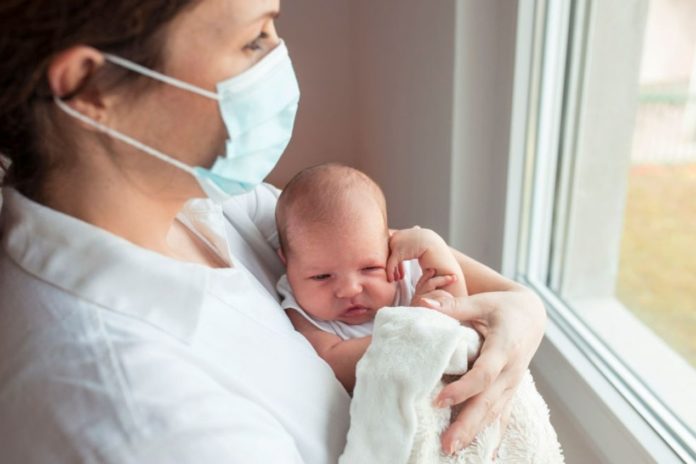There have been few cases of neonates infected with COVID-19 to date, and there is little understanding of neonatal SARS-CoV-2 infection. Recent studies, however, have suggested an increased risk of severe COVID-19 in infants when compared to older children, based on data showing an increased rate of hospitalization among infants.
In the United States, babies under the age of one year accounted for 62% of all pediatric COVID-19-related hospitalizations between February and April 2020, and infants under the age of three months accounted for 18.8% of pediatricCOVID-19-related hospitalizations between March and July 2020. However, as doctors may be more likely to admit COVID-19-positive newborns, the hospitalization rate may not be a good indicator of disease severity.
Previous research reveals that COVID-19 infection is uncommon in neonates and that when it does occur, the sickness is usually moderate, however, severe cases have been documented. According to a French study, children younger than ninety days accounted for 37% of all pediatric COVID-19 hospital admissions, however, 97 % of these newborns did not have a serious illness.
SARS-CoV-2 transmission to neonates is uncommon, but it does happen, posing a risk to newborns with underdeveloped immune systems. Due to the rarity of COVID-19 in neonates, there are few studies with relevant comparison groups. In this study, researchers from the Centers for Disease Control and Prevention (CDC) compared indicators of severe illness in newborns with and without a COVID-19 diagnosis at birth using a large US electronic healthcare dataset.
The findings were published in the Journal of Perinatology.
The research
701,777 births were registered in 609 US hospitals between March and December 2020, with 49 % whites, 46.5 % using Medicaid, and 9.2 % being premature. During the birth hospitalizations, a total of 209 COVID-19 infections were recorded. When compared to infants without COVID-19, the majority of newborns with the condition were born prematurely. COVID-19 was found in 69.9% of neonates with no symptoms of serious illness.
When term/preterm neonates with COVID-19 were compared to those without COVID-19, the risk of developing sepsis or requiring ICU admission was higher. However, 77.4 % of babies with COVID-19 showed no signs of severe disease. Early preterm babies who tested positive for COVID-19 had a higher likelihood of requiring invasive ventilation than those who did not.
When comparing SARS-CoV-2 positive children to Hispanic neonates without the disease, SARS-CoV-2 positive infants had a higher risk of respiratory problems. Non-Hispanic “other/unknown” race neonates with COVID-19 had a higher risk of ICU admissions, while non-Hispanic white term/preterm newborns with COVID-19 had a higher risk of sepsis than those without COVID-19.
The study found that Mechanical ventilation and respiratory problems were more common in non-Hispanic Black babies who tested positive for SARS-CoV-2. COVID-19-positive preterm Hispanic children had a higher risk of respiratory problems, as did non-Hispanic “other/unknown” race newborns, as well as a higher risk of sepsis and the requirement for invasive ventilation. When comparing neonates with COVID-19 to those without COVID-19, those with COVID-19 had to stay in the ICU for a much longer period of time.
Limitations
COVID-19 in babies between March and December 2020 seems to be low, according to the data obtained for this study. As a result of the findings, term/preterm neonates who tested positive for COVID-19 may not be at a greater risk of respiratory difficulties or the need for mechanical ventilation, but they may be at an increased risk of sepsis and ICU admission.
Early preterm neonates with COVID-19 may not have an increased risk of ICU admission or respiratory problems, but they may have a higher chance of requiring invasive ventilation. Future research could look into how COVID-19 affects the risk profile of babies.
Image Credit: Getty
You were reading: Transmission of SARS-CoV-2 to newborns is rare, but it still occurs – CDC researchers
